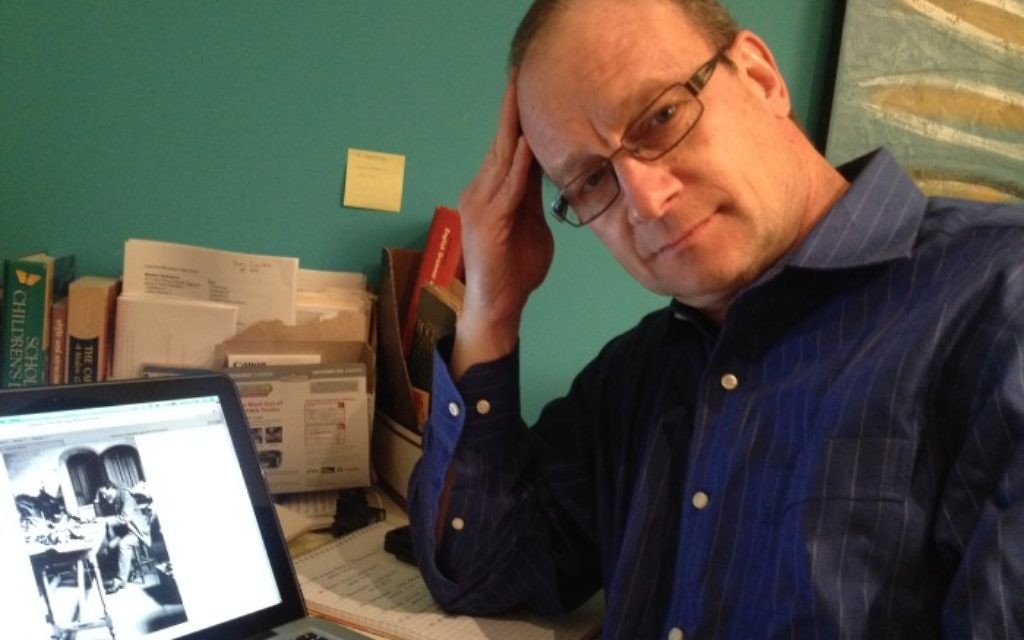Teens Engaged, Interested in the News
Their teacher said I should expect spirited sessions when I met with her students at the Weber School. When we discuss current events, she warned, the debates can be vigorous.
After touring the school several weeks earlier, I had offered to speak with students about journalism and the news business.
Ariella Livnat took me up on the offer. An Israeli who made aliyah from Romania at age 15, she invited me to talk with students in her morning and afternoon current events classes.
Get The AJT Newsletter by email and never miss our top stories Free Sign Up
My résumé includes the better part of two years as the producer in an international television network’s Jerusalem bureau and more than 26 years with the same network in various capacities as a national editor.
Even when my duties focused elsewhere, I maintained contact with the news from Israel and the Middle East, returning several times for periods ranging from days to weeks. Much of my current work appears in the Atlanta Jewish Times in this column and in articles I write about various aspects of Jewish life.
The conventional wisdom is that teenagers are preoccupied with their own affairs and are more interested in reality television that distorts reality than in the serious news that concerns their elders.
My youngest child is a high school junior. He watches the news on television when there is a major event but otherwise follows online through his Twitter feed and other sources. While it’s true that teens are less likely to smudge their fingers turning the pages of a newspaper or to regard the evening newscasts as must-see television, the way my son and his peers at Weber use technology belies the stereotype of being disengaged or disinterested.
The afternoon session at the Weber School included students from other classes, some taking seats on the floor when the chairs filled. Other than the basketball players, who wore shirts and ties because they had a game that night, the teenagers were dressed like, well, teenagers.
Many of these students have visited Israel, including several recently returned from a school-sponsored trip. They study Israel, its government, its culture and the Hebrew language. The vibe in the classroom was informal, but when it came time for their questions, they were asked deliberately and seriously.
Why is there so much more coverage of Israel than its neighbors in the region?
Why is Israel presented this way or that?
How does something like that (pick your favorite example of a mistake or what you consider bias) happen?
From this point forward, I have only a couple of hundred words left in this column, insufficient space to relate my responses in full, and I’m leery of addressing such issues in shorthand. Perhaps in some future column I will expound on these subjects.
I told the students that issues of history, religion, geography and politics (both domestic and international) explain journalists’ interest in Israel. To its credit, I said, Israel allows journalists into the country and, in most circumstances, does not interfere with their work.
I wanted to give the students answers unvarnished by my opinions on various aspects of U.S. or Israeli politics.
We all have opinions, formed by everything we learn, every experience we have, every person who influences us. The challenge for journalists, I told them, is to prevent bias from interfering with efforts to be objective (perhaps an unrealistic goal but a worthy ideal nonetheless).
When bias is evident, it must be addressed by those up the food chain, I said, because a news organization’s reputation can be sullied in an instant and take much longer to repair.
Humans make mistakes, I explained, sometimes because of insufficient background in a subject and sometimes because the pressures of the job cause haste that leaves insufficient time to ensure that reports are accurate in facts and context.
The Weber students were a lively bunch, and I enjoyed crossing a generational divide to meet them. That they take such an interest as teens bodes well for them to be informed and engaged adults.





comments